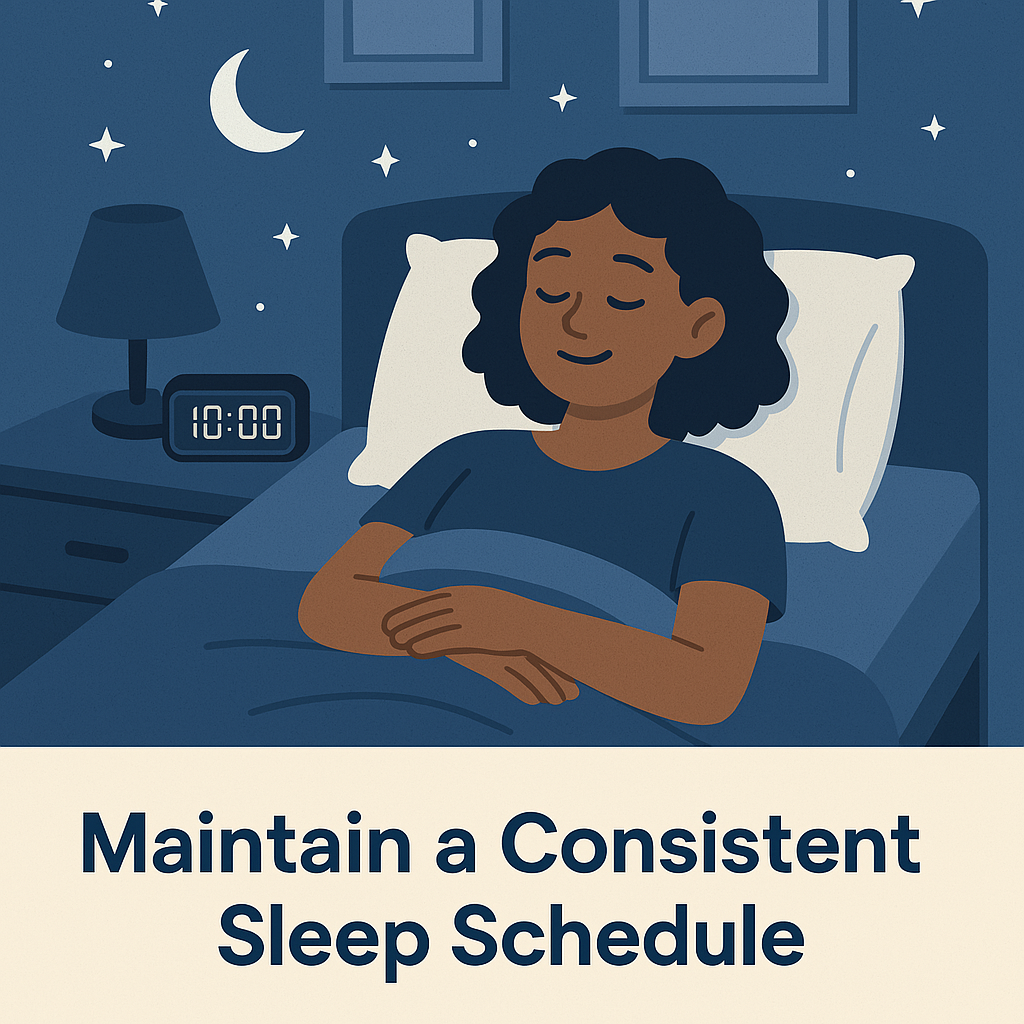How to Get Good Sleep at Night
Sleep is an essential function of the human body that helps in restoring energy, enhancing cognitive functions, and maintaining overall health. However, in today’s fast-paced world, getting a good night’s sleep has become a challenge for many. Poor sleep can lead to several health problems, including stress, anxiety, weakened immunity, and even chronic conditions like heart disease and diabetes. In this guide, we will explore effective ways to improve your sleep quality and wake up feeling refreshed and energized. Here is all about How to Get Good Sleep at Night…read carefully.
Understanding the Importance of Sleep
Before diving into tips for better sleep, it’s crucial to understand why sleep is important. Sleep plays a vital role in:
Repairing and regenerating body tissues
Consolidating memories and enhancing learning
Regulating hormones that control appetite and stress
Boosting immunity to fight infections
Maintaining mental and emotional well-being
A lack of proper sleep can lead to mood swings, reduced concentration, weight gain, and increased risk of serious health issues.
How to Get Good Sleep at Night
Tips to Get Good Sleep at Night (How to Get Good Sleep at Night)
- Maintain a Consistent Sleep Schedule
Our bodies function on a biological clock known as the circadian rhythm, which regulates sleep-wake cycles. Going to bed and waking up at the same time every day helps regulate this clock, making it easier to fall asleep and wake up naturally.

Aim for 7-9 hours of sleep each night.
Avoid drastic changes in your bedtime, even on weekends.
Set a consistent wake-up time, regardless of how well you slept the previous night.
- Create a Comfortable Sleep Environment
Your bedroom environment significantly affects sleep quality. Here are some key elements to consider:
Keep Your Room Dark: Use blackout curtains or wear an eye mask to block out light.
Maintain a Cool Temperature: A room temperature between 60-67°F (15-19°C) is ideal for sleeping.
Reduce Noise: Use earplugs or a white noise machine if external sounds disturb your sleep.
Invest in a Good Mattress and Pillow: Ensure your bed is comfortable and provides proper support.
- Limit Exposure to Screens Before Bedtime
Electronic devices such as smartphones, tablets, and televisions emit blue light, which suppresses the production of melatonin—a hormone responsible for sleep. To improve sleep:
Avoid screens at least one hour before bedtime.
Use blue light filters on devices if screen usage is necessary.
Opt for activities like reading a book or meditation instead of scrolling through social media.
- Watch Your Diet and Caffeine Intake
What you eat and drink can impact your sleep quality.
Avoid Heavy Meals Before Bed: Eating large meals close to bedtime can cause indigestion and discomfort, making it difficult to sleep.
Limit Caffeine and Nicotine: These stimulants can keep you awake and disrupt your sleep cycle. Avoid consuming them at least 4-6 hours before bedtime.
Reduce Alcohol Intake: While alcohol may make you feel drowsy, it can lead to poor sleep quality and frequent wake-ups during the night.
Stay Hydrated: Dehydration can cause discomfort, but excessive fluid intake before bed may lead to frequent trips to the bathroom.
- Manage Stress and Anxiety
Stress and anxiety are major culprits behind sleepless nights. Practicing relaxation techniques can help calm your mind before bed.
Try deep breathing exercises to relax your nervous system.
Practice meditation or mindfulness to clear mental clutter.
Write down your thoughts in a journal to ease an anxious mind.
Engage in light stretching or yoga to release tension from the body.
- Get Regular Exercise
Regular physical activity helps regulate sleep patterns by reducing stress and promoting deeper sleep. However, timing matters:
Engage in moderate exercise like walking, jogging, or cycling at least 3-4 hours before bedtime.
Avoid intense workouts right before sleep, as they can increase heart rate and make it harder to fall asleep.
Practicing gentle stretching or yoga in the evening can promote relaxation.
- Take Short Naps During the Day (If Needed)

While naps can be beneficial, long or late naps can interfere with nighttime sleep.
If you need to nap, limit it to 20-30 minutes.
Avoid napping after 3 PM, as it may reduce your sleep drive for the night.
Short naps can help boost alertness without disrupting your nighttime rest.
- Develop a Bedtime Routine
A relaxing bedtime routine signals your body that it’s time to sleep. Here are some ideas:
Take a warm bath to relax muscles and lower body temperature.
Read a book to unwind before bed.
Listen to soothing music or nature sounds to calm the mind.
Drink a cup of caffeine-free herbal tea, such as chamomile or valerian root.
- Avoid Lying Awake in Bed

If you struggle to fall asleep within 20 minutes, don’t force it. Instead:
Get out of bed and engage in a calming activity (reading, meditating, or listening to soft music).
Avoid checking the time frequently, as it can increase stress about not sleeping.
Return to bed only when you feel sleepy to reinforce a strong association between your bed and sleep.
- Seek Professional Help if Needed

If you’ve tried multiple strategies and still experience poor sleep, it may be time to seek professional advice. Chronic sleep issues can be linked to conditions like insomnia, sleep apnea, or restless leg syndrome.
Consult a doctor if you frequently wake up tired or have trouble sleeping despite following good sleep hygiene.
Consider cognitive behavioral therapy (CBT) for insomnia, which helps in addressing negative sleep patterns.
A sleep study may be recommended if sleep disorders are suspected.
Conclusion (How to Get Good Sleep at Night)
Getting a good night’s sleep is essential for overall health and well-being. By making small lifestyle changes, such as maintaining a consistent sleep schedule, optimizing your bedroom environment, managing stress, and avoiding stimulants before bedtime, you can significantly improve your sleep quality. Prioritizing rest is not a luxury—it’s a necessity for a healthier, happier life. Start implementing these tips today and enjoy the benefits of restorative sleep every night!
If you want to know more about this, you can comment below
like-
-
How to sleep better at night
-
Tips for better sleep
-
How to improve sleep quality
-
Best ways to sleep fast
-
Healthy sleep habits
-
How to get deep sleep at night naturally
-
Best bedtime routine for good sleep
-
How to sleep peacefully without waking up
-
How to stop overthinking and sleep better
-
How to get sound sleep without medicine
-
Natural remedies for better sleep
-
What to do if you can’t sleep at night
-
How to reset your sleep schedule
-
Best foods for better sleep
-
Why can’t I sleep at night
-
How to sleep faster in 5 minutes
-
How to fall asleep quickly and stay asleep
-
Sleep hygiene tips for adults
-
How to relax your mind before bed
-
Best sleeping positions for deep sleep
Related Articles



Follow us




